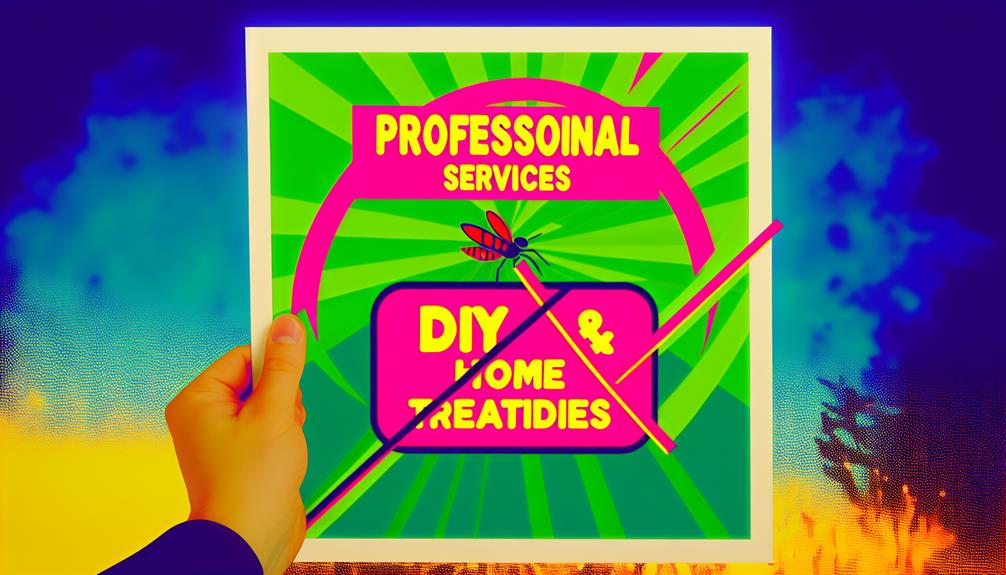You may think that local pest control PPC is too competitive and saturated, making it difficult to stand out.
However, there are 5 proven strategies that can help you effectively reach and engage your local audience.
By implementing these tactics, you can maximize your PPC efforts and gain an edge over your competitors.
Stay tuned to discover how geo-targeting, local keywords, compelling ad copy, location extensions, and negative keywords can elevate your local pest control PPC campaigns to new heights.
Table of Contents
ToggleKey Takeaways
- Geo-targeting and local reach are essential for effectively targeting potential customers within a specific geographic location and tailoring ads to resonate with the local community.
- Incorporating local keywords and relevance, such as location-specific terms and landmarks, helps establish a connection with the community and increase engagement.
- A/B testing ad variations, incorporating local keywords into ad copy, and utilizing dynamic keyword insertion are effective strategies to improve ad copy and drive higher conversion rates.
- Utilizing location extensions enhances local presence in search results, improves trust and credibility, and increases click-through rates. Additionally, implementing negative keywords helps eliminate irrelevant search queries and optimize PPC campaigns for more efficient ad targeting.
Geo-Targeting for Local Reach

To effectively reach local customers and maximize the impact of your pest control PPC strategies, geo-targeting allows you to precisely target your ads to specific geographic locations. Location-based targeting is a crucial component of your digital marketing efforts, especially for a local business like pest control. By utilizing geo-targeting, you can ensure that your ads are only displayed to potential customers within a specific radius of your business. This precision not only helps in reaching the right audience but also ensures that your ad budget is utilized efficiently.
Community outreach is another important aspect of local pest control PPC strategies. With geo-targeting, you can tailor your ads to resonate with the specific needs and concerns of the local community. This can include addressing common pest issues in the area, offering localized promotions, or emphasizing your business’s commitment to serving the local community.
Utilizing Local Keywords for Relevance
When targeting local customers with your pest control PPC campaigns, it’s essential to incorporate local keywords that reflect the specific needs and preferences of the community. By utilizing local search trends and implementing keyword optimization, you can maximize the relevance of your ads and increase the likelihood of reaching potential customers in your area.
Here are some effective strategies for utilizing local keywords:
- Utilize location-specific terms to target customers in your service area.
- Incorporate local landmarks or well-known areas to establish a connection with the community.
- Leverage local events or seasonal changes to tailor your keywords to current needs.
- Use language and phrases that resonate with the local demographic to create a sense of familiarity and trust.
Creating Compelling Ad Copy for Conversions

Incorporating local keywords into your ad copy is crucial for engaging potential customers in your service area and driving conversions.
When creating ad copy for local pest control PPC, it’s essential to focus on strategies that have been proven to boost conversion rates. A/B testing ad variations allows you to compare different ad copies to determine which ones are most effective in driving conversions. This data-driven approach helps you identify the most compelling ad copy that resonates with your local audience.
Additionally, using dynamic keyword insertion can dynamically update your ad copy to match the search terms entered by potential customers. This personalized approach increases the relevance of your ad copy, ultimately leading to higher conversion rates.
Implementing Location Extensions for Visibility
Implement location extensions in your local pest control PPC campaigns to enhance visibility and reach potential customers in your targeted service areas. By implementing location extensions, you can significantly improve ad rank and increase click-through rates, ultimately driving more qualified leads to your business.
Here are four compelling reasons to utilize location extensions:
- Enhanced Local Presence: Stand out in local search results, demonstrating to potential customers that you’re nearby and ready to address their pest control needs promptly.
- Improved Trust and Credibility: Displaying your business address alongside your ad fosters trust and credibility, reassuring customers of your legitimacy and physical presence in their area.
- Increased User Convenience: Make it easier for potential customers to find and contact you by providing them with your business address directly in the ad, streamlining the process and increasing the likelihood of engagement.
- Expanded Reach: Reach a wider audience within your specified service areas, ensuring that your ads are shown to relevant users who are actively seeking pest control services in their vicinity.
Leveraging Negative Keywords for Efficiency

By eliminating irrelevant search queries through strategic implementation of negative keywords, you can optimize your local pest control PPC campaigns and ensure that your ads are presented to the most qualified and relevant audience within your targeted service areas.
Keyword exclusion is a vital component of budget optimization, as it allows you to prevent your ads from displaying for search terms that aren’t closely related to your services. Conducting thorough search term analysis is crucial for identifying irrelevant or non-converting keywords that are consuming your budget without delivering results.
By leveraging negative keywords based on this analysis, you can refine your ad targeting and improve ad performance.
Utilize search term analysis tools provided by the PPC platform to identify the specific search queries triggering your ads. Look for keywords that are driving clicks but not resulting in conversions. Once identified, add these as negative keywords to your campaigns to filter out unqualified traffic.
This strategic approach will help you allocate your budget more efficiently by focusing on the most relevant and high-performing keywords. Regularly reviewing and updating your negative keyword lists is essential to ensure ongoing campaign efficiency and optimal ad performance.





